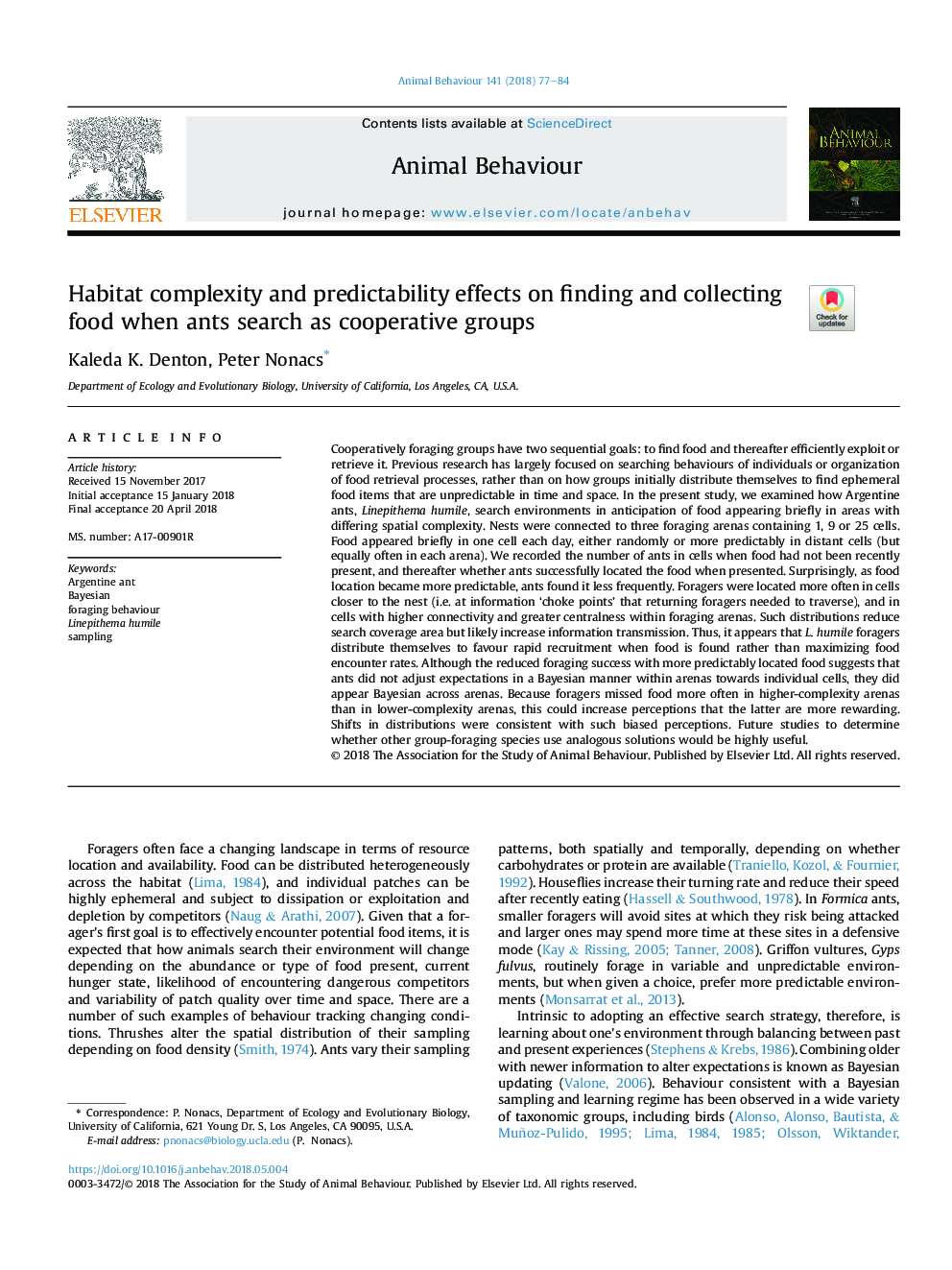| کد مقاله | کد نشریه | سال انتشار | مقاله انگلیسی | نسخه تمام متن |
|---|---|---|---|---|
| 8488478 | 1552187 | 2018 | 8 صفحه PDF | دانلود رایگان |
عنوان انگلیسی مقاله ISI
Habitat complexity and predictability effects on finding and collecting food when ants search as cooperative groups
ترجمه فارسی عنوان
پیچیدگی و قابلیت پیش بینی جاذبه در یافتن و جمع آوری غذا زمانی که مورچه ها به عنوان گروه های همکاری جستجو می کنند
دانلود مقاله + سفارش ترجمه
دانلود مقاله ISI انگلیسی
رایگان برای ایرانیان
کلمات کلیدی
موضوعات مرتبط
علوم زیستی و بیوفناوری
علوم کشاورزی و بیولوژیک
علوم دامی و جانورشناسی
چکیده انگلیسی
Cooperatively foraging groups have two sequential goals: to find food and thereafter efficiently exploit or retrieve it. Previous research has largely focused on searching behaviours of individuals or organization of food retrieval processes, rather than on how groups initially distribute themselves to find ephemeral food items that are unpredictable in time and space. In the present study, we examined how Argentine ants, Linepithema humile, search environments in anticipation of food appearing briefly in areas with differing spatial complexity. Nests were connected to three foraging arenas containing 1, 9 or 25 cells. Food appeared briefly in one cell each day, either randomly or more predictably in distant cells (but equally often in each arena). We recorded the number of ants in cells when food had not been recently present, and thereafter whether ants successfully located the food when presented. Surprisingly, as food location became more predictable, ants found it less frequently. Foragers were located more often in cells closer to the nest (i.e. at information 'choke points' that returning foragers needed to traverse), and in cells with higher connectivity and greater centralness within foraging arenas. Such distributions reduce search coverage area but likely increase information transmission. Thus, it appears that L. humile foragers distribute themselves to favour rapid recruitment when food is found rather than maximizing food encounter rates. Although the reduced foraging success with more predictably located food suggests that ants did not adjust expectations in a Bayesian manner within arenas towards individual cells, they did appear Bayesian across arenas. Because foragers missed food more often in higher-complexity arenas than in lower-complexity arenas, this could increase perceptions that the latter are more rewarding. Shifts in distributions were consistent with such biased perceptions. Future studies to determine whether other group-foraging species use analogous solutions would be highly useful.
ناشر
Database: Elsevier - ScienceDirect (ساینس دایرکت)
Journal: Animal Behaviour - Volume 141, July 2018, Pages 77-84
Journal: Animal Behaviour - Volume 141, July 2018, Pages 77-84
نویسندگان
Kaleda K. Denton, Peter Nonacs,
